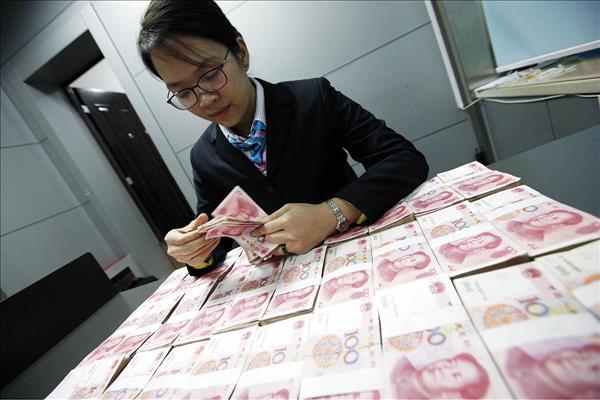
China urges SOEs to control debt risks
(MENAFN- Asia Times) China's State-owned Assets Supervision and Administration Commission of the State Council (SASAC) has urged state-owned enterprises (SOEs) to strengthen the prevention and control of debt risks.
'A number of local SOEs defaulted recently, which is caused by the pandemic attack, market fluctuations and other external reasons as well as internal factors such as blind expansion and poor management,' Peng Huagang, a spokesperson of the SASAC, said at a press conference on Tuesday.
But the debt risk of central SOEs is generally under control, he noted.
The SASAC will formulate a set of guidelines to urge local regulators to accurately identify companies with high risks, properly handle risks in accordance with market-oriented, legalized and internationalized principles, effectively maintaining local financial ecology and stability, Peng said.
Some Chinese enterprises reported corporate bond defaults last year due to a Covid-induced slump in revenue and alterations in the domestic and external economic environment. For example, the AAA-grade bond defaults of China's state-owned Yongmei Group and Brilliance Auto Group caught the public's attention and dampened market confidence.
Digital currencyShanghai recently joined other Chinese cities running new pilot tests for the country's digital currency, which can now be used in some vending machines in the city's underground stations.
When paying with digital yuan, people scan the QR code on the screen and make the payment with a mobile phone. At present, the payment is only available for a limited number of trial customers.
The vending machines are managed by a Shanghai-based company, the Global Times reported.
5G technologyA senior official from the Ministry of Industry and Information Technology, China's top industry regulator, called for deeper international cooperation on 5G cybersecurity.
China has invested more than 260 billion yuan (US$40.2 billion) to build the world's largest 5G network, Liu Liehong, vice-minister of industry and information technology, said at the opening ceremony of the Mobile World Congress Shanghai 2021.
The event is the first major offline exhibition for the international mobile communications industry since the start of the Covid-19 pandemic.
More than 718,000 5G base stations have been built in China, accounting for roughly 70% of the world's total, Liu said.
Company newsThe year 2020 was a tough one, but Huawei managed to persevere with it, Hu Houkun, the deputy chairman of Huawei Technologies, said at the opening ceremony of the 2021 Mobile World Congress Shanghai.
Huawei recorded growth in both revenue and profit last year, despite headwinds caused by US government restrictions, Hu said.
In his keynote speech, Hu spoke about the huge impact Covid-19 had on countries, enterprises and people around the world, as well as the role technology played in combating the pandemic.
'Innovation isn't just about solving the challenges we face today,' Hu said. 'It's about lighting up tomorrow. Once we get the pandemic under control, we need to think about how we can innovate to improve the quality of life, make businesses smarter and create a more inclusive world.'
Lao Gan Ma, a major chili sauce maker in China, saw its sales revenue record a high at 5.4 billion yuan in 2020, up 7% from 2019.
Established in 1996 in Guiyang, the capital of southwest China's Guizhou Province, Lao Gan Ma has developed into one of the largest chili sauce production enterprises in China.
The stories were compiled by Nadeem Xu and KoKo and first published at ATimesCN.com .

Legal Disclaimer:
MENAFN provides the
information “as is” without warranty of any kind. We do not accept
any responsibility or liability for the accuracy, content, images,
videos, licenses, completeness, legality, or reliability of the information
contained in this article. If you have any complaints or copyright
issues related to this article, kindly contact the provider above.


















Comments
No comment